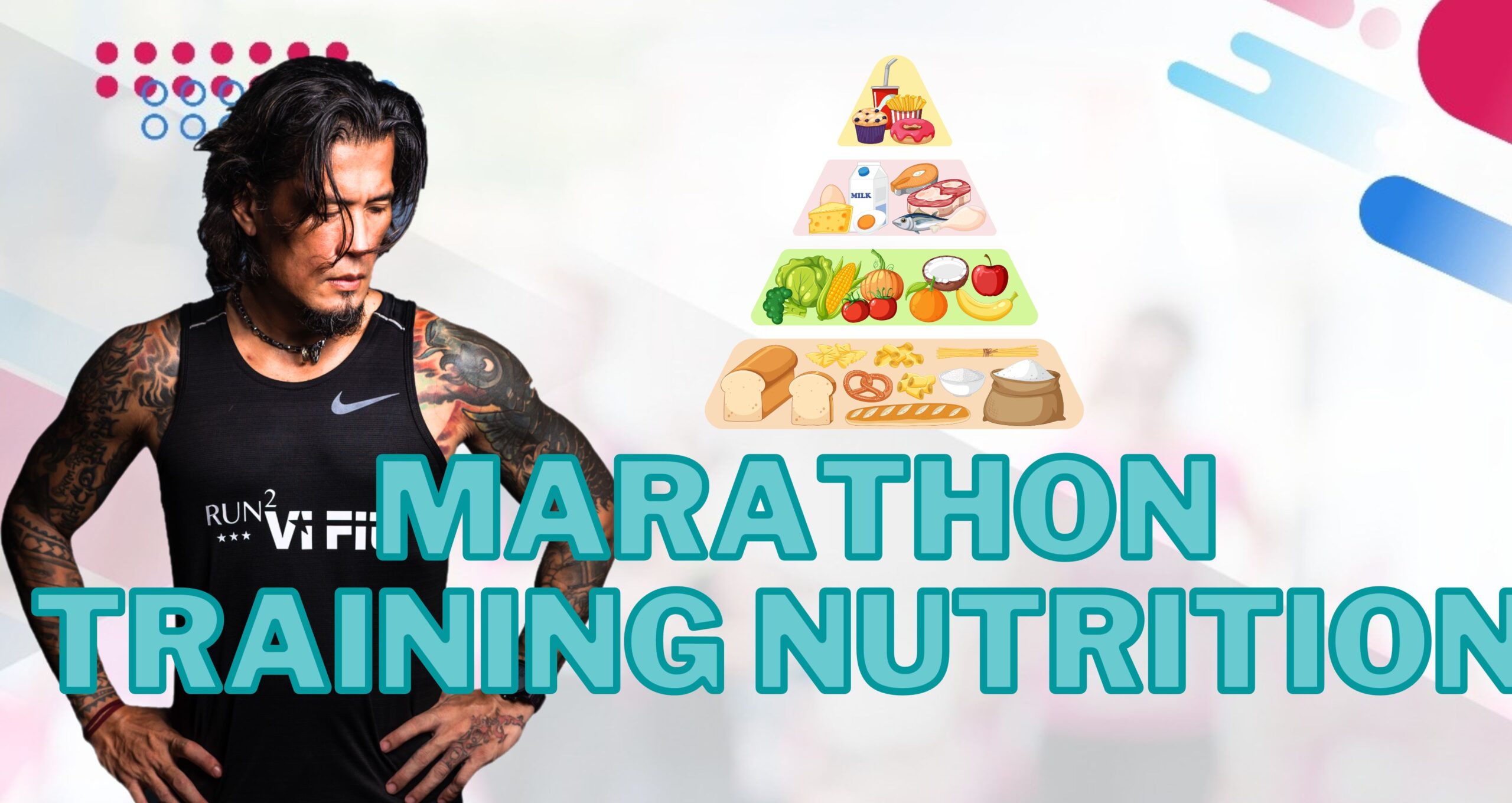Your cart is currently empty!

Fueling for Success: Essential Marathon Training Nutrition Tips
/
Marathon Training Nutrition: Fuel Smart, Run Strong

Training for a marathon is a significant physical and mental commitment. It requires not only endurance, dedication, and a well-structured training plan, but also a meticulous approach to nutrition. How you fuel your body in the months, weeks, and days leading up to race day can significantly impact your performance, energy levels, and recovery. This article will guide you through the essential elements of marathon training nutrition to ensure you maximize your potential and cross the finish line feeling strong and accomplished.
Carbohydrates: Your Primary Fuel Source
Carbohydrates are the cornerstone of marathon nutrition. They provide the main source of energy during long-distance runs by breaking down into glucose, which fuels your muscles and keeps you going strong. During intense training periods, aim to include a variety of high-quality carbohydrates in your meals such as whole grains, sweet potatoes, oats, quinoa, fruits, and vegetables. These complex carbohydrates are packed with fiber, which helps sustain energy levels and promotes a steady release of glucose over time.

As a rule of thumb, try to fill half your plate with carbs, especially on high-mileage days. Carbohydrates should account for 50-65% of your daily caloric intake, depending on your training intensity. During longer runs (anything over 60 minutes), you may also need to replenish your energy levels with fast-digesting carb sources such as energy gels, bananas, or sports drinks. These options provide a quick glucose boost and prevent fatigue during endurance efforts.
Protein: For Muscle Repair and Recovery
While carbohydrates are your main energy source, protein is equally crucial for muscle repair and recovery. Each run places stress on your muscles, leading to micro-tears that need to be repaired. Consuming adequate protein post-run can help repair these tissues, build stronger muscles, and reduce the risk of injury. Opt for lean protein sources like chicken, turkey, fish, eggs, low-fat dairy, beans, and plant-based options like tofu, lentils, and tempeh.
For endurance athletes, the recommended protein intake ranges from 1.2 to 1.7 grams per kilogram of body weight daily. Incorporating a protein source within 30 minutes to an hour after your run is essential for kick-starting the recovery process. Consider a post-run smoothie with a blend of Greek yogurt, berries, and spinach, or a turkey and avocado wrap to refuel effectively.
Healthy Fats: Endurance Sustainers
Healthy fats play a vital role in marathon training by providing a concentrated source of energy, supporting cellular function, and promoting long-term endurance. Unlike carbohydrates, fats are metabolized slowly, making them particularly useful for sustaining energy on longer training days. Include sources of unsaturated fats such as avocados, nuts, seeds, olive oil, and fatty fish like salmon in your diet.

Balance is key when incorporating fats. Too much fat close to your training session may cause gastrointestinal distress, so focus on adding them to your meals and snacks throughout the day. This will help improve energy availability and ensure you have the stamina to complete those long-distance runs without hitting the dreaded “wall.”
Hydration: The Unsung Hero
Hydration is often overlooked, but it is one of the most critical components of marathon nutrition. During runs, you lose water through sweat, and with it, essential electrolytes such as sodium, potassium, and magnesium. Dehydration can lead to fatigue, cramps, and impaired performance. To prevent this, start each training session well-hydrated and drink water consistently throughout your run.
On shorter runs, water may be sufficient, but for runs over 60 minutes or on hot days, consider adding electrolyte-rich drinks or supplements to replenish lost salts. Aim for 500-750 ml (17-25 oz) of fluid per hour of exercise, adjusting based on your sweat rate and environmental conditions. After the run, continue hydrating until your urine is pale yellow—a sign of adequate hydration.
Vitamins and Minerals: Supporting Overall Health
Training for a marathon puts stress not only on your muscles but also on your immune system. Including a variety of nutrient-dense foods rich in vitamins and minerals can help support your overall health and enhance recovery. Leafy greens, such as spinach and kale, are high in iron and magnesium, both of which are critical for energy production and muscle function. Berries, citrus fruits, and bell peppers are loaded with antioxidants like vitamin C, which helps reduce inflammation and boost immunity.
Calcium and vitamin D are also essential for bone health, especially for runners who place repetitive stress on their joints. Include low-fat dairy products, fortified plant milks, or consider a supplement if you’re not meeting your needs through diet alone.
Race-Day Nutrition: Practice Makes Perfect
One of the most common mistakes marathon runners make is changing their nutrition strategy on race day. Introducing new foods or supplements can lead to gastrointestinal distress, cramping, or suboptimal energy levels. To avoid this, practice your race-day nutrition plan during long training runs. Test out different types of energy gels, bars, or snacks and pay attention to how your body responds.
Breakfast on race day should consist of familiar, easy-to-digest foods high in carbohydrates and low in fiber and fat. Oatmeal with a banana and honey, a bagel with peanut butter, or a smoothie can provide the energy you need without causing discomfort. During the race, stick to the fueling strategy you’ve practiced and aim to consume 30-60 grams of carbohydrates per hour to maintain energy levels.

Final Thoughts: Fuel Smart, Train Hard
Marathon training is a comprehensive endeavor that goes beyond pounding the pavement. What you eat—and when you eat it—can significantly impact your training and performance. Prioritize balanced meals rich in carbohydrates, lean proteins, healthy fats, and plenty of fluids to support your body’s needs throughout the training process. By refining your nutrition strategy, you’ll not only improve your endurance and recovery but also ensure that when race day arrives, you’re fueled up and ready to go the distance.
